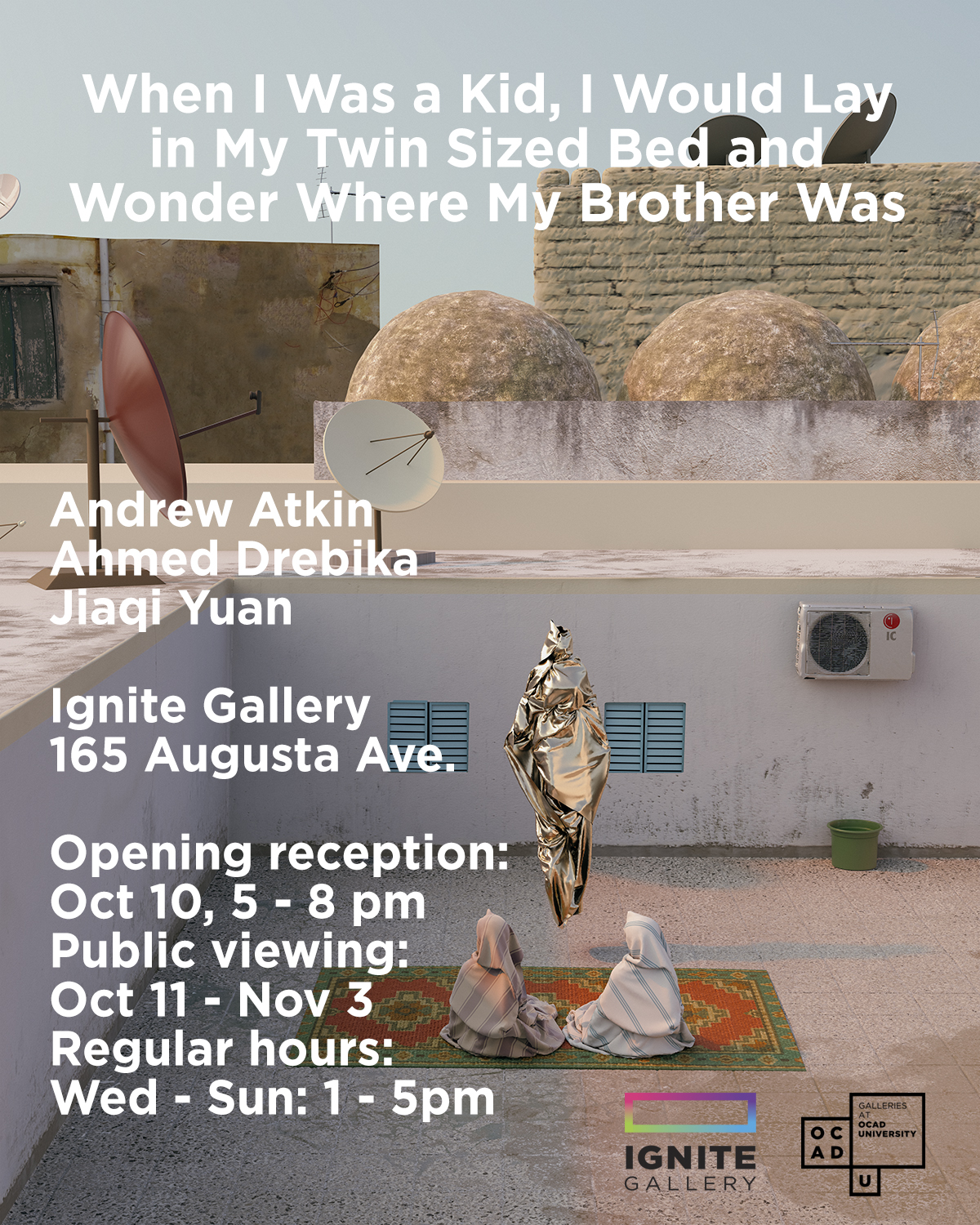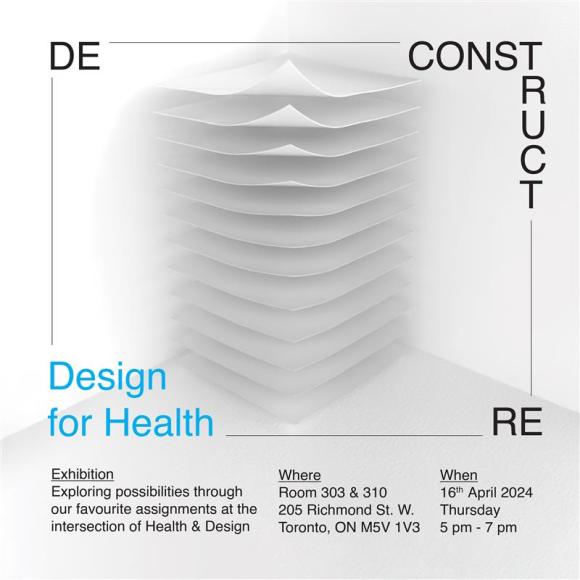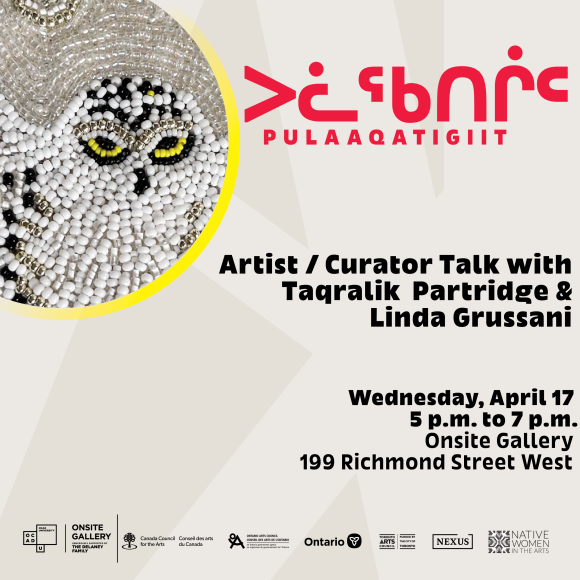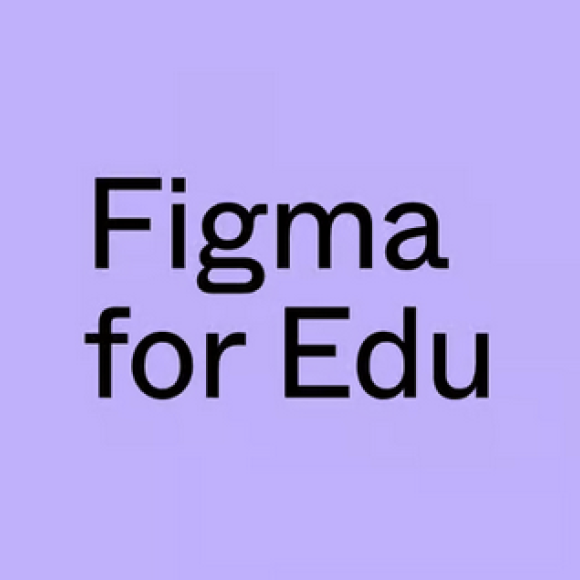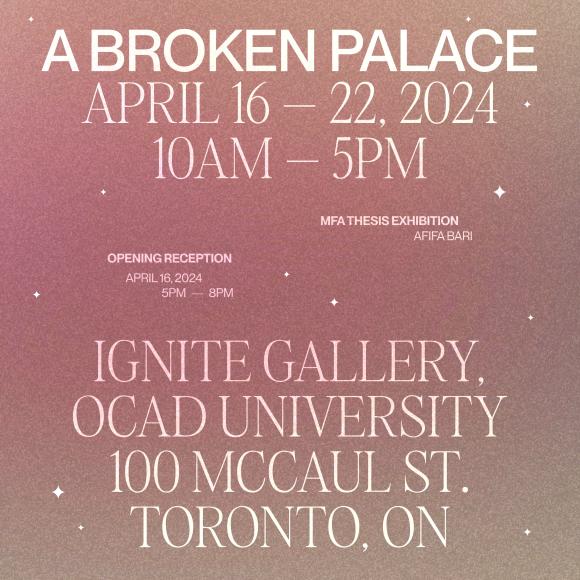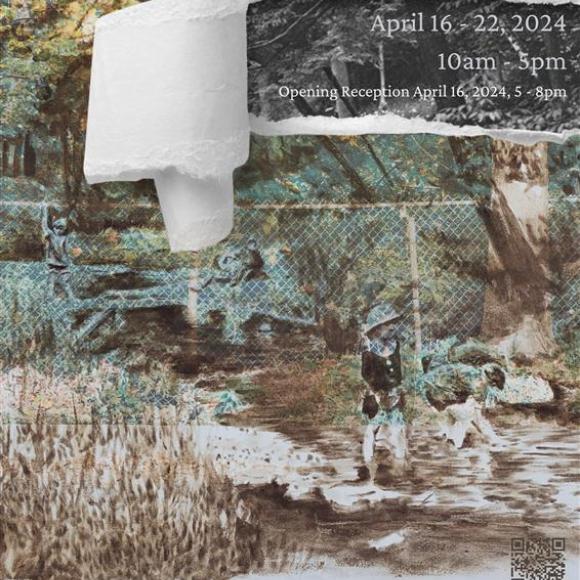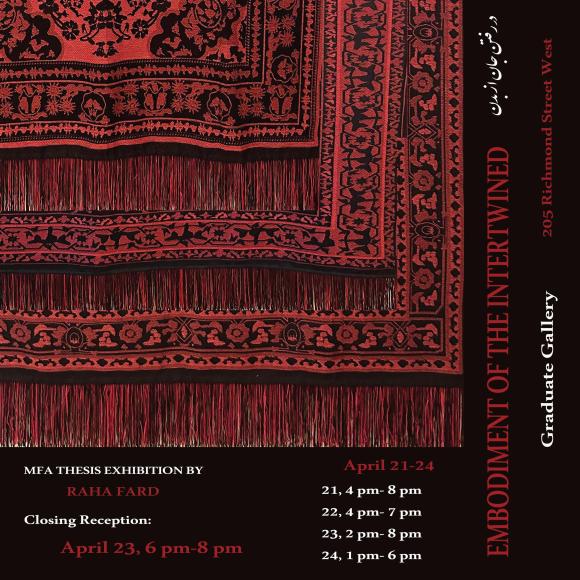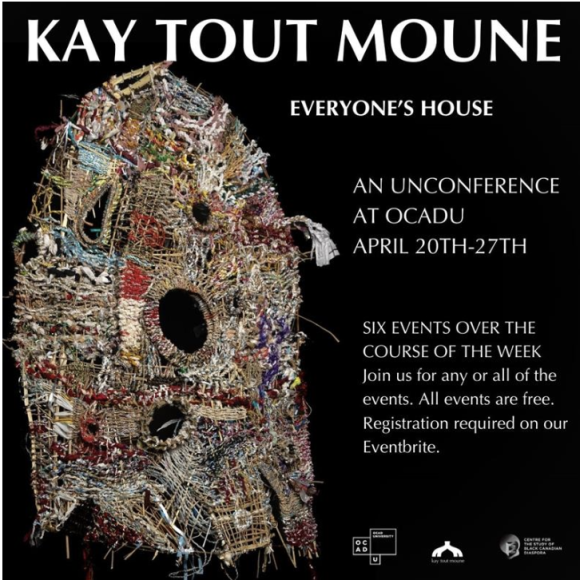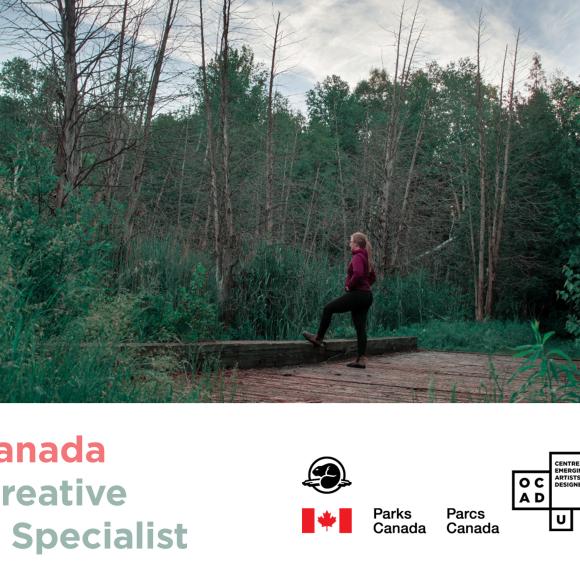When I Was A Kid, I Would Lay in My Twin Sized Bed and Wonder Where My Brother Was
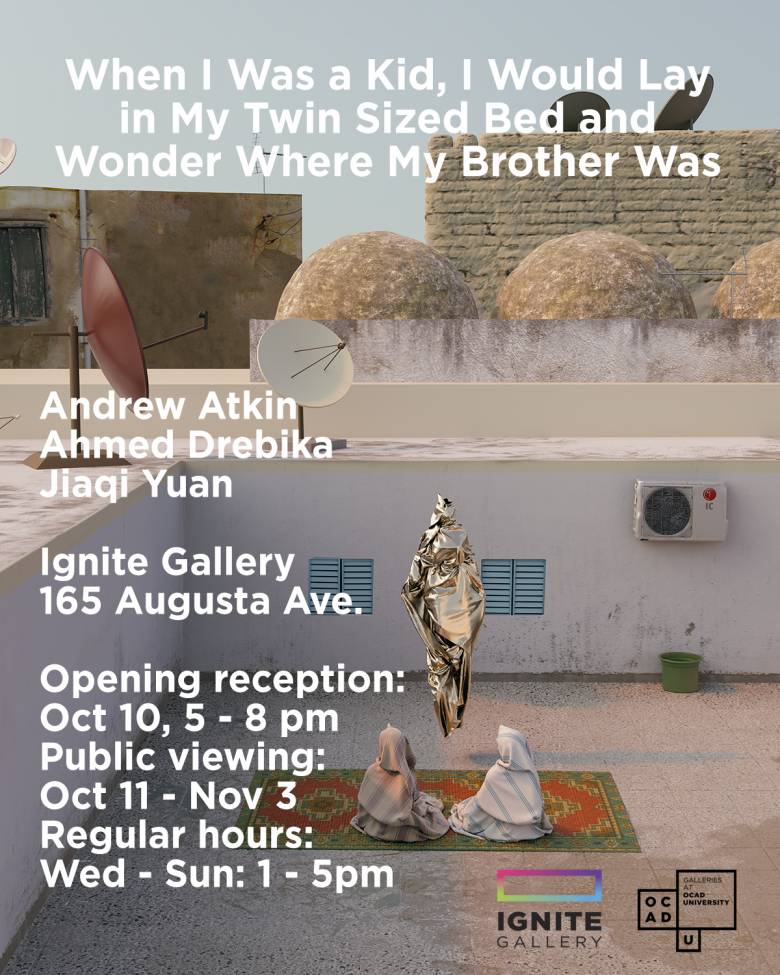
Andrew Atkin, Ahmed Drebika, Jiaqi Yuan
Opening reception: October 10, 5-8pm
October 11- November 3
Regular hours:
Wed - Sun:1 - 5pm
All three artists are interested in highlighting the duality of contemporary issues and explore the relationship of humanity to the highly industrialized society we find ourselves within.
Through combining two forms of contrasting nostalgia, Ahmed Drebinka manages to produce creations that are earnest and sublime. Ahmed employees video game and CGI visual language that he grew up with to recreate the Libya that no longer exists after almost a decade of civil war. While the digital environments he creates harken back stylistically games of his youth, they contain symbols of the violence which has wreaked devastation and havoc on his homeland. Since Ahmed left Libya in 2013, the changes he notices when visiting have had a profound impact on him, and in his work, he uses technology to lament the upheaval of his birthplace while also trying to piece through what it has become today.
The performative nature of Jiaqi Yuan’s agnostic automations embody representations of developmental learning. Her sculptures are cautionary observations reflecting on technology’s increasingly pervasive role in child-rearing. In her work Future Toy, for instance, Jiaqi reaches to the past for a traditional Chinese folk drum, which has been modernized through automation in order to consider the increasing dependence on technology children are devolving and warns of it becoming an emotional pacifier with dehumanizing effects. While Jiaqi laments the cotemporary phenomenon of mechanization and her observations are cautionary, through their repetitive kinetic motions the resulting objects become meditative to behold.
Andrew Atkin creates interconnected systems based on organic and electronic components, in which he explores the history and impact of our material usage while offering a hopeful alternative. Andrew investigates the abilities of material science and food infrastructure to shape people into communities, ultimately speculating how the future can be shaped cooperatively through thoughtful making. By gestures such as replicating a Styrofoam cup out of stoneware, Andrew’s work suggests that an optimistic outcome can be achieved by embracing the technological trauma rather than wiping it from memory.
